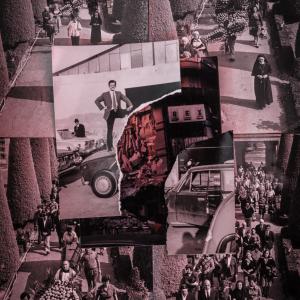
Rex. / The greatest

Raffaele, the author's father, was a rich, spoiled man, arrogant and inordinate in every thing he did. He lost his left leg as a young man, and that made him the victim of a great inferiority complex. With his casual, irresponsible behaviour, he destroyed himself, all his monetary and physical resources and his own family, only to let himself die two years after the suicide of his wife Silvana.

Regrets. / Never happy.

he author’s mother name was Silvana. She was a beautiful and charming woman suffering from a serious untreated depression, that resulted into psychosis. She was obsessed by appearances, luxury and her husband Raffaele, who cheated on her and who she was emotionally blackmailing. She showed a joy that was never genuine, in actuality, she was constantly unhappy.
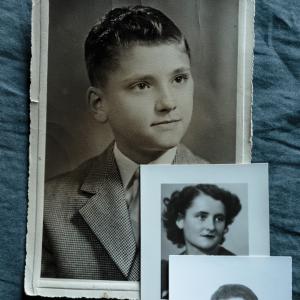
Without you. / Oedipus.

The paternal grandmother of the author was known as "The Colonel". Under a tough appearance, she was hiding a woman whose needs were disregarded, never adequately looked upon by her son, Raffaele, and her husband. One day she complained, feeling a nodule in her breast; she was mocked by both. One year later breast cancer metastases were everywhere, and Raffaele, destroyed by guilt, froze forever in his past.
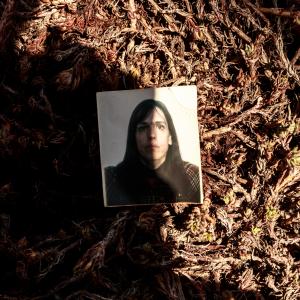
Mammina cara. / Mommie dearest.
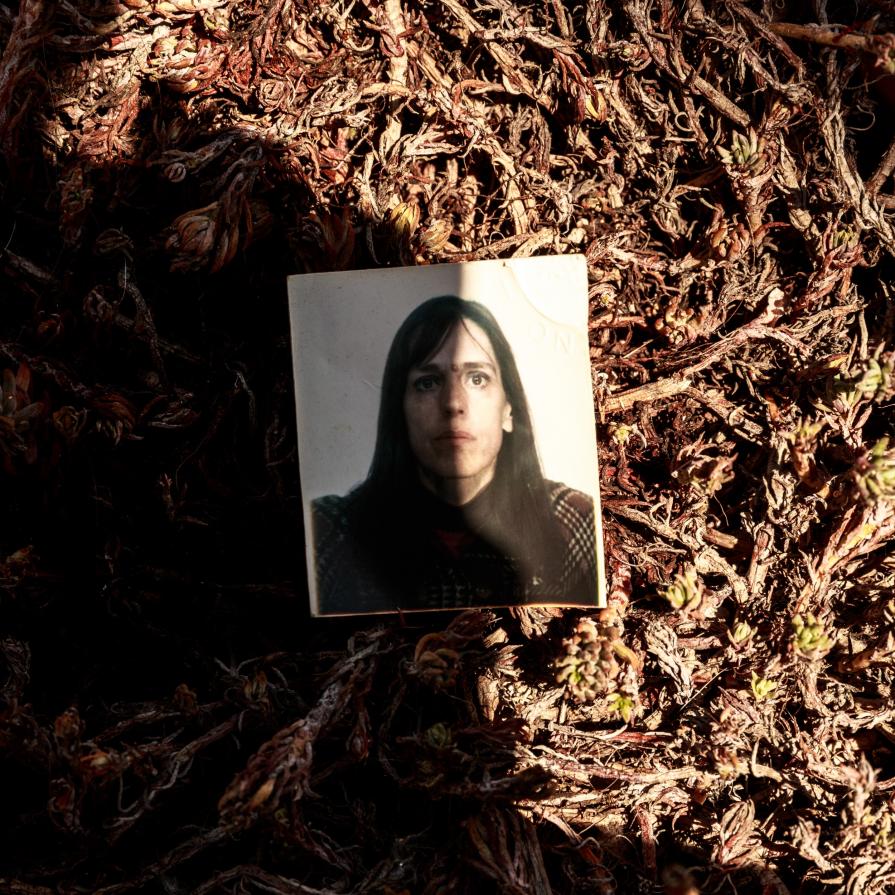
This picture is one of the most painful for the author. It's the last photo of Silvana, her mother, a month before her suicide. Lost, frightened and desperate, she’s just a shadow of her former self. The author loves her, hates her. Silvana was the first tormentor and at the same time the first love. Along with her will go a huge part of the author's life, of her memories, her whole childhood, and adolescence.

Il vitellino. / The way you broke my heart in two.

Shortly before the suicide of her mother, a victim of schizophrenia, the author tried to keep the situation under control. In a day as any other before the end, seeing the mother rambling in comparing everyone’s fate to that of lambs at the slaughter, the author -just seventeen years old- naively asked her why she never cried for her. The cryptic answer is a metaphor: "Because you are a calf."

Suicide and its consequences. / Lo sai anche tu che una madre non dovrebbe mai sopravvivere ai suoi figli.

What is left at the end of a story? There remains the shadow of someone who is gone. There remain questions that cannot be answered. There are tears that are just splashes of water on a glass. There are nail scratches left who knows when. The fragments of an ego to be recomposed, a joy to regain, remain a healthy and far away from what has so far been "the present".
Historia de un Amor.
If it is true that the care, the love, the kindness given to a human being give him or her back a perceivable depth, it is also true that conflict, violence and indifference can flatten him and rob him of any thickness.
A photography, motionless, crystallized, doomed to destruction.
Historia de un Amor tells a true story, where the characters, in a constant, mutual conflict, persecuted self-destruction until they died - with the exception of the author - and it tells that story dividing it in two parts: the first shows the feelings, traumas and thoughts of its protagonist, and is composed by a a series of analogic photos photographed again on a background that, changing, reveals the sharable meditations of an extremely private slice of life. Photos that are defaced and ripped in times of pain, but never thrown away. The author tries to further a reflection on the concept of innocence and on the emotional popular reaction reserved to situations in which a child is the abused and survives. What is "abuse"? What happens "after", when the fury towards the abusers wanes? Doesn't the temptation of an easy lynching distract the attention from the victimes? Why should children be custodians of a formal innocence that, in reality, doesn't provide safety and often makes no difference? What is a child, if not a human being? And why should a grown up human be "guilty" as an adult?
In a world that disregards the need for mutual listening in favor of easy, superficial indignation and the hassle of everything that can pose as a disturbance, violence is an endless spiral, in which the psychological future of the victims is left to chance, and the possibility of a reiteration of evil is very high.
This picture named "We are not innocent./ Little red story on child abuse." start the project. Two little girls are sitting on a couch; both have been subjected to sexual abuse. Their faces were scribbled by the author's hand at the time of the shooting.
Her smile is intact only in the reflection on the table on the left; in the same way, in reality, tragedy was choked by the present. In despair, the uncertainty of the sign on her face is like a prayer: "I do not want to disappear."

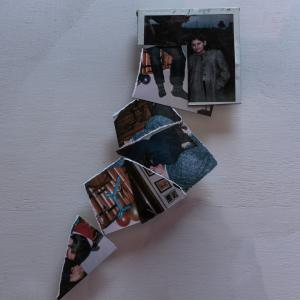























Comments 2
Say something